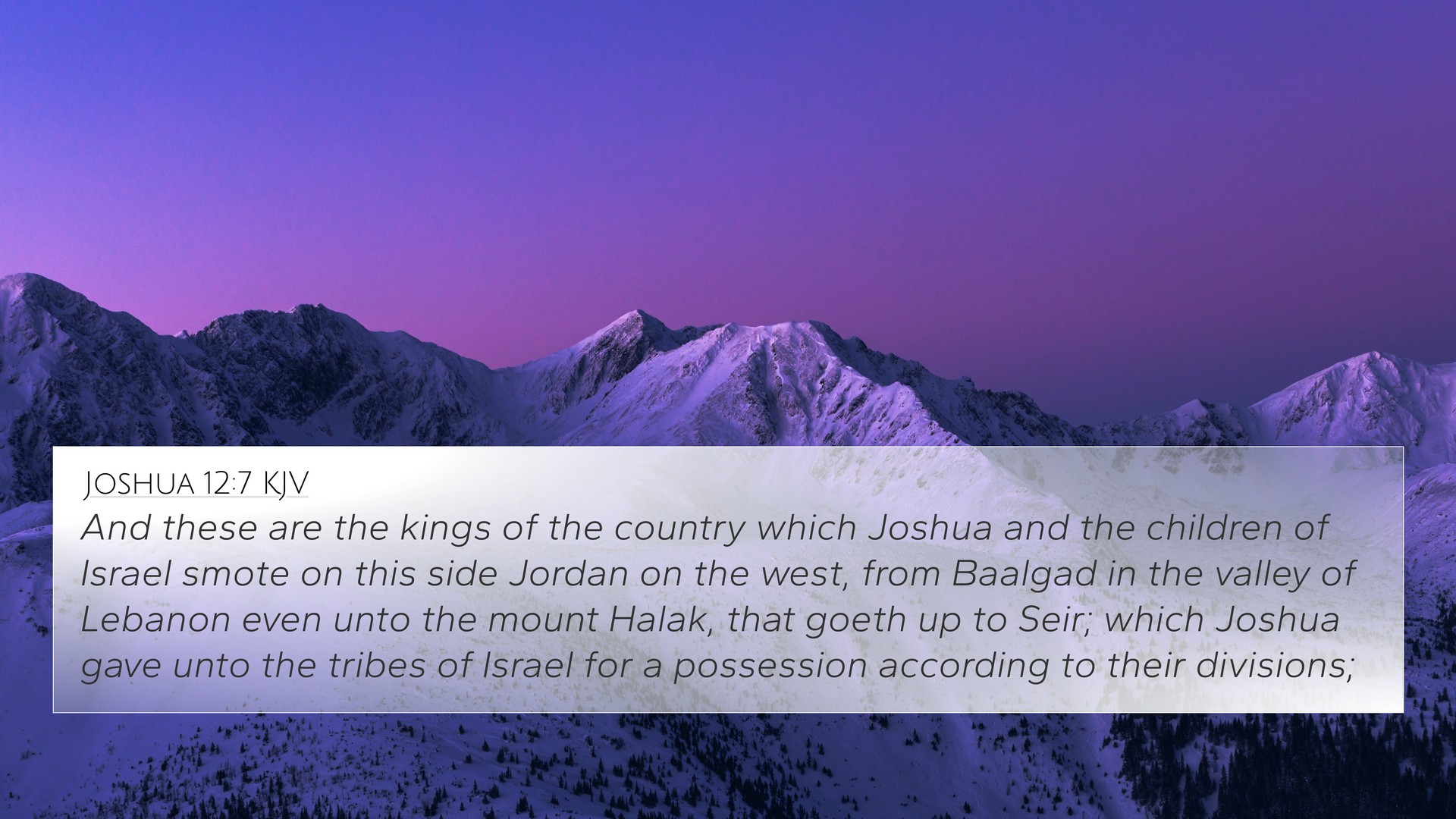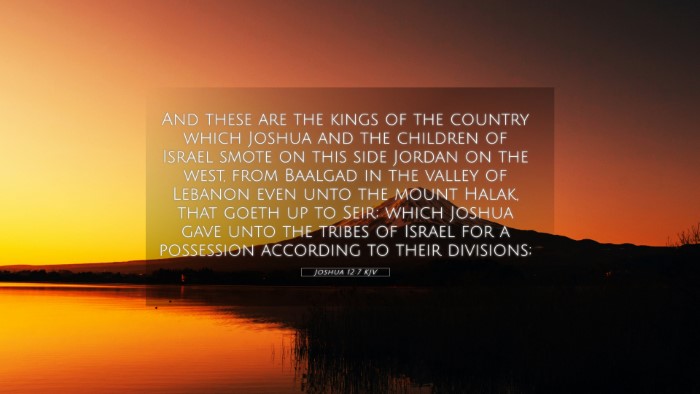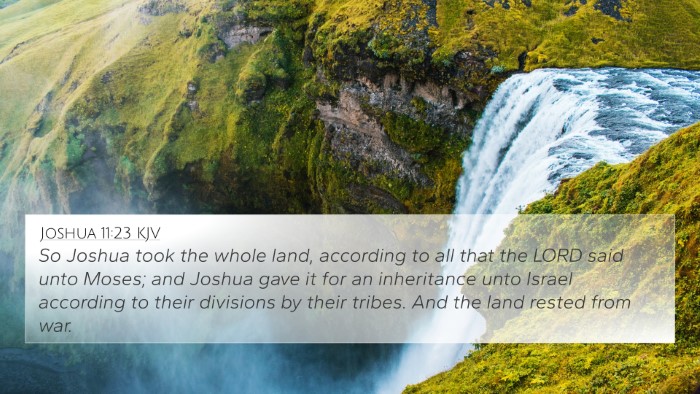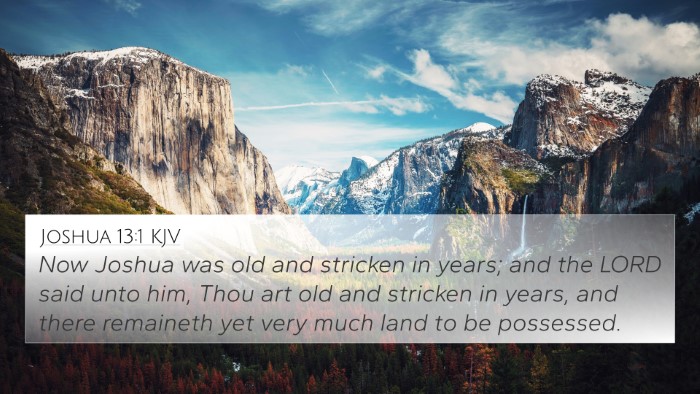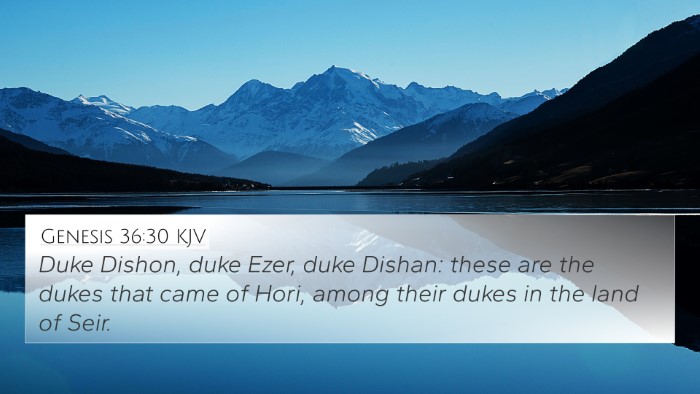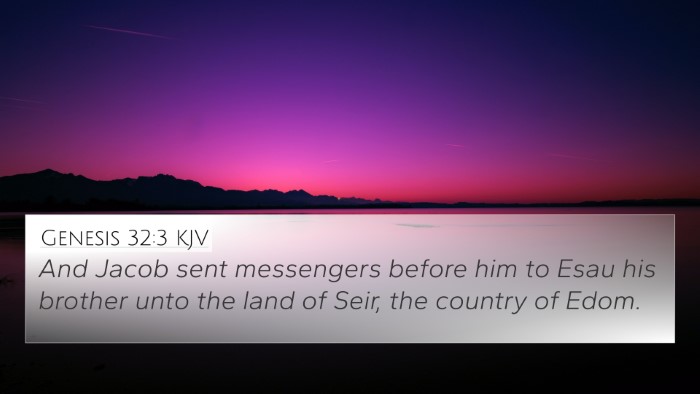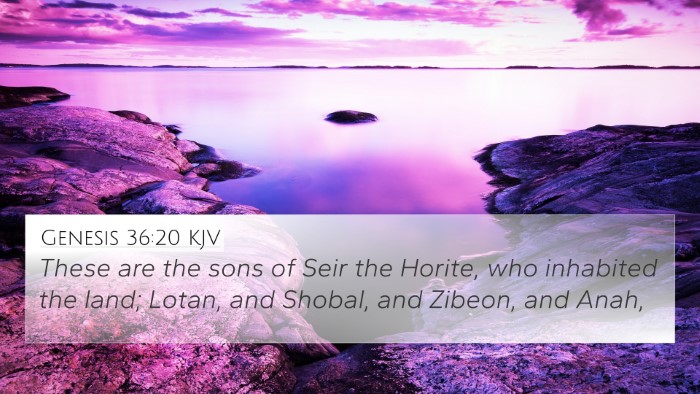Bible Verse Meaning: Joshua 12:7
Verse: Joshua 12:7 - "And these are the kings of the land, which Joshua and the children of Israel smote on this side Jordan westward; from Baal-gad in the valley of Lebanon even unto the mount Halak, that goeth up to Seir; which Joshua gave unto the tribes of Israel for a possession according to their divisions."
Overview
This verse is part of a historical account that details the conquest of the Promised Land by Joshua and the Israelites. It summarizes the victories over the kings of Canaan, highlighting God's faithfulness in fulfilling His promise to give the land to His people.
Interpretation and Insights
Historical Context
In this passage, we see the culmination of several battles led by Joshua after the Israelites entered the land of Canaan. The mention of Baal-gad and Mount Halak provides geographical context, which underscores the specific territories that were conquered.
Theological Significance
The listing of defeated kings illustrates God’s sovereignty and power in granting victory to Israel. It reflects the divine promise made to Abraham, Isaac, and Jacob, reaffirming that God ensures His word comes to pass. Matthew Henry notes that these victories are a testament to God's commitment to His covenant with Israel.
Connections to Other Scripture
- Deuteronomy 2:24: "Rise ye up, take your journey, and pass over the river Arnon: behold, I have given into thine hand Sihon the Amorite, king of Heshbon, and his land." This verse shows the earlier conquests that set the stage for Joshua's victories.
- Joshua 10:16-27: Details the fate of the kings who fought against Israel and emphasizes God's power in battle.
- Romans 8:37: "Nay, in all these things we are more than conquerors through him that loved us." This New Testament assurance aligns with the victories experienced by the Israelites.
- Psalms 44:3: "For they got not the land in possession by their own sword, neither did their own arm save them: but thy right hand, and thine arm, and the light of thy countenance, because thou hadst a favor unto them." This reflects the understanding that Israel’s success was due to God's intervention.
- 1 Corinthians 15:57: "But thanks be to God, which giveth us the victory through our Lord Jesus Christ." Highlights the ongoing pattern of divine victory for believers.
- Hebrews 11:30-31: "By faith the walls of Jericho fell down, after they were compassed about seven days. By faith the harlot Rahab perished not with them that believed not, when she had received the spies with peace." Connecting faith in God's promises with victory over enemies.
- Matthew 28:18: "And Jesus came and spake unto them, saying, All power is given unto me in heaven and in earth." Illustrates the continuous theme of divine authority over earth's kings.
Exegetical Commentary
Albert Barnes emphasizes the organizational structure of Israel’s possessions post-conquest. He notes the significance of mentioning these kings as it serves as a reminder of God's deliverance. Adam Clarke remarks on the geographical scope, suggesting that these details establish a solid claim to the lands conquered.
Cross-References and Thematic Connections
The act of cross-referencing biblical texts in studying Joshua 12:7 reveals deeper insights into God’s redeeming work throughout scripture:
- Numbers 33:51-52: Command to conquer inhabitants of Canaan.
- Deuteronomy 3:21-22: Moses instructing Joshua about trusting God's deliverance.
- Joshua 1:3: God's promise of giving every place the sole of their foot treads upon.
- Psalm 78:55: Mentioning God driving out nations before Israel’s conquest.
- John 16:33: "In the world ye shall have tribulation: but be of good cheer; I have overcome the world." This signifies reassurance in divine victory through trials.
Conclusion
Joshua 12:7 serves not only as a historical record but also as a theological affirmation of God’s promises. The victories achieved by Joshua and the Israelites emphasize the importance of faith, obedience, and the fulfillment of God's covenant. By engaging with the cross-references, readers can see how the themes of triumph, divine promise, and historical context interweave through both the Old and the New Testaments, enriching the understanding of God's ongoing narrative of redemption.
